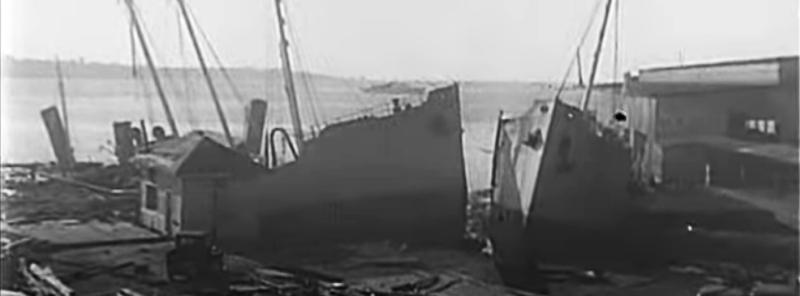 Hurricane Henri is expected to make landfall on the eastern portion of Long Island or in southern New England on Sunday afternoon. It will be the first hurricane to strike New England in 30 years. My wife and I cut short a vacation in the Adirondacks today to do what we could to batten down our sailboat on a mooring in Oyster Bay, Long Island. (We will keep our fingers crossed until at least Monday.)
Hurricane Henri is expected to make landfall on the eastern portion of Long Island or in southern New England on Sunday afternoon. It will be the first hurricane to strike New England in 30 years. My wife and I cut short a vacation in the Adirondacks today to do what we could to batten down our sailboat on a mooring in Oyster Bay, Long Island. (We will keep our fingers crossed until at least Monday.)
The current models show Hurricane Henri coming ashore near the Hamptons on Long Island as a Category 1 storm. While Hurricane Henri is a serious threat, with luck, its impact will pale in comparison to the Category 3, 1938 Great New England Hurricane, also referred to as the Yankee Clipper, and the Long Island Express Hurricane, which also made landfall near the Hamptons.
It is estimated that the 1938 hurricane killed 682 people, damaged or destroyed more than 57,000 homes, and caused property losses estimated at $306 million ($4.7 billion in 2017.) It remains the most powerful and deadliest hurricane in recorded New England history.
As we hunker down and wait for Henri to arrive, Here is a short video made by the Works Progress Administration (WPA) about the Great New England Hurricane of 1938.

Bob was the worst in recent history here in Maine
Fascinating video. Thanks. Hope your boat is ok.
After the ’38 Hurricane, the admirals’ barges were found stacked like toy boats in front of the Naval War College basin.
Henri hit the Narragansett Bay in Rhode island and is slowly making its way west across Connecticut. At the time of this post little if any rain has fallen on the east sidee of the storm. The bulk of the rain is falling on the western edge of the storm. Henri might go up the hudson river and follow the Saint John River. Bay of Fundy is much too cold. Our summer has not been warm enough to heat it up.
Henri was originally predicted to leave here Wednesday morning. It might still bee here by then. Even the fishermen arent bothering to move their boats to the shelter of Long Cove.